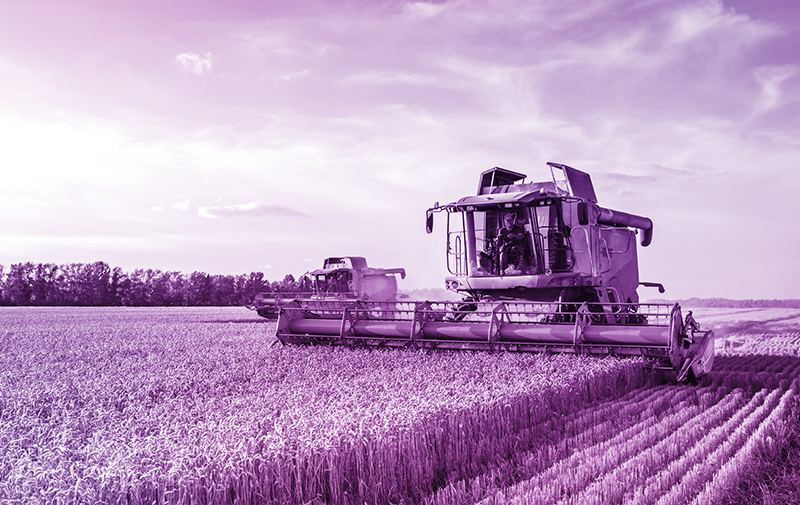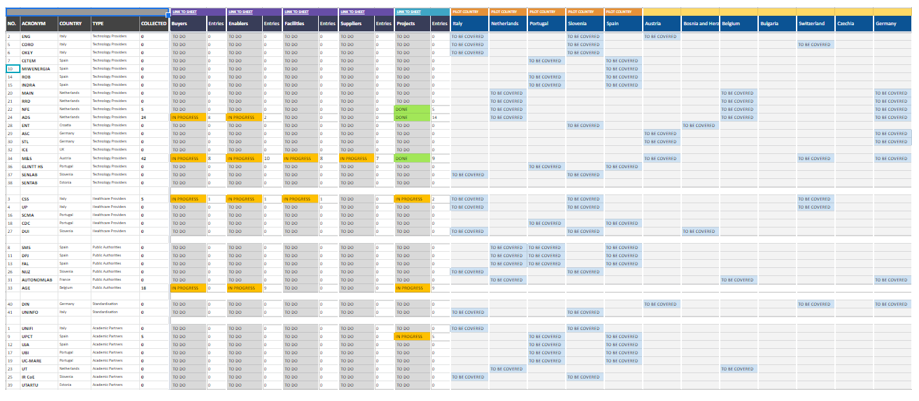
15 May MAGDA: Project advancing dynamic weather data and irrigation advisory for climate mitigation in farming
Developed solutions within MAGDA are going to provide farmers with severe weather warnings, soil and atmosphere moisture and irrigation advisories through a dedicated dashboard and by interfacing with a farm management system. Decisive impacts will therefore be improving food security and sustainable water management with the use of cutting-edge technology throughout the European food system.
The MAGDA project sets out several objectives to harness the untapped potential of various datasets and technologies for the benefit of agriculture. By assimilating GNSS-derived, drone-derived, Copernicus EO-derived datasets, and in-situ weather sensors, MAGDA aims to explore new possibilities in agricultural applications.
One key goal is the development of high-resolution and short-range numerical weather forecasts and hydrological models. These models will provide valuable insights into irrigation performance and water accounting, enabling farmers to make informed decisions about their irrigation practices.
MAGDA also aims to directly provide farmers and agricultural operators with valuable information about severe weather and irrigation operations. By leveraging the collected data, the project will enable the delivery of augmented short-term weather forecasts and irrigation advisories through a dedicated dashboard and Application Programming Interface (API). This will empower farmers to optimise their farming activities based on real-time information and gain access to peak scientific innovations.
To support data collection and monitoring efforts, MAGDA plans to deploy sensors, GNSS, and drones in the vicinity of large farms and cultivated areas. These technologies will enable the high-resolution monitoring of atmospheric variables, contributing to more accurate and localized data for weather and irrigation predictions.
Furthermore, the project aims to validate very-short-range nowcasting systems specifically designed for predicting severe weather events that can impact precision agriculture activities. This validation will enhance the reliability and effectiveness of weather forecasts, aiding farmers in managing their agricultural operations more efficiently and proactively contribute to protecting crops from severe weather impacts, decreasing the growing risk of food production losses due to adverse weather like hail, wind, or drought.
MAGDA is therefore contributing to the Sustainable Development Goal 12 (“Ensure sustainable consumption and production patterns”) and 13 (“Climate Action”), as well as to the EU´s Common Agricultural Policies (CAP).
To maximize the project’s impact, MAGDA emphasizes effective communication and dissemination activities. By raising awareness and engaging with relevant stakeholders, the project aims to promote the adoption of its findings and ensure measurable outcomes in the agricultural sector.
In summary, the MAGDA project seeks to leverage diverse datasets, advanced technologies, and innovative models to revolutionize the way weather forecasts, irrigation management, and precision agriculture are approached. Through its objectives, MAGDA aims to empower farmers with valuable information, enhance their decision-making capabilities, and ultimately contribute to sustainable and efficient agricultural practices.
- EXPLORE the untapped potential of assimilating GNSS-derived, drone-derived, Copernicus EO-derived datasets, and in-situ weather sensors
- DEVELOP high-resolution and short-range numerical weather forecasts and hydrological models for irrigation performance and water accounting
- PROVIDE valuable information about severe weather and irrigation operations directly to farmers and agricultural operators
- ENABLE augmented short-term weather forecasts and irrigation advisories to farmers by a dedicated dashboard and Application Programming Interface
- DEPLOY sensors, GNSS and drones, to monitor atmospheric variables at high spatial resolution in the vicinity of large farms and cultivated areas
- VALIDATE very-short range nowcasting systems for the prediction of severe weather in support of precision agriculture activities
- INCREASE awareness and impact through effective and measurable communication and dissemination activities
Consortium
The project consists of a consortium of 7 partners from 6 European countries. It comprises high level experts from geodetics, satellite remote sensing, airborne (weather drone) sensing, weather monitoring as well as modelling, and excellence impact management.
The project is coordinated by Geomatics Research & Development (Italy) and the partners include: CIMA Research Foundation (Italy), Administrația Națională de Meteorologie (Romania), FutureWater (Netherlands/Spain), MINDS & SPARKS (Austria), CAP 2020-CONSULT (France), and Meteomatics (Switzerland).
MINDS & SPARKS contributes to the MAGDA project as lead of dissemination, exploitation and communication (DEC) activities, set on generating a deep impact and wide distribution of the results, as well as sparking the interest of the main stakeholders, and engaging them for innovative market development.
Links
https://twitter.com/MAGDA_Project
https://www.linkedin.com/in/magda-project
Keywords
Agriculture, weather forecasting, hydrological modelling, IoT sensors, GNSS, Galileo, Copernicus, irrigation, crop advisories, Meteodrone, weather station, atmospheric model

